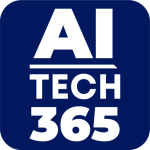Data platform provider Starburst announced its involvement in the Open Semantic Interchange, an open-source effort to establish a common specification enabling companies to consolidate fragmented data definitions into one vendor-agnostic semantic model.
Led by Snowflake, the AI Data Cloud company, and supported by ecosystem partners across analytics, governance, engineering, and industry sectors, OSI supplies a common specification that unifies semantic metadata across dashboards, notebooks, and machine-learning models.
OSI wants to simplify data operations and enable faster AI adoption without vendor-lock-in by enabling consistent business definitions and metrics across tools and platforms.
“We are proud to collaborate with Snowflake on the Open Semantic Interchange,” said Justin Borgman, CEO & Cofounder, Starburst. “OSI represents the future of data exchange for AI, one based upon standards, interoperability, and customer choice. It means that by establishing common standards, we enable the seamless maintenance of business context across platforms and tools.”
Also Read: Cognite and Databricks Partner to Accelerate Industrial AI Innovation Through an Open Data Ecosystem
As part of OSI, Starburst will help build a transparent community-driven semantic standard that guarantees consistency, portability, and interoperability of business metrics and definitions.
“Unlocking the full potential of data and AI requires a common foundation, and the Open Semantic Interchange is that critical step in building bedrock,” said Josh Klahr, Director of Analytics Product Management at Snowflake. “Our collaboration with partners like Starburst sets a single, vendor-neutral standard for semantic data, bringing clarity and consistency through the entire ecosystem. This is foundational work required to simplify operations for data, drive innovation, and set up organizations to build the next generation of AI applications.”
With OSI about to revolutionize interoperability in the data and AI ecosystem, the initiative allows for seamless semantic metadata exchange and gives organizations the flexibility to adopt best-of-breed tools while preserving consistent business logic across platforms.

